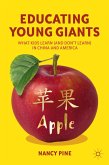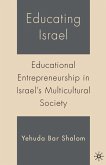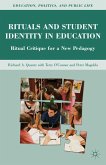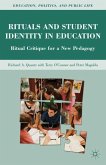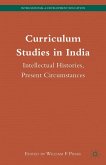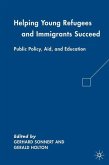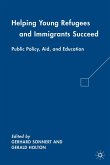Carries readers into Chinese and American elementary and high school classrooms, and highlights the big differences between schooling in China and the United States. Nancy Pine reveals how these two countries need to extract themselves from outmoded practice and learn from each other's strengths.
"This useful comparison of primary education in China and the U.S. is a must-read for anyone involved with educational reform and assessment. Dr. Pine offers a well-documented, thorough, unbiased, and up-to-date report. Challenging current educational reforms to be more responsive to rapid changes around us, she provides insightful observations that should lead the way. Such reforms are indeed needed to provide the next generation with tools to secure our collective future." - Alice S. Huang, California Institute of Technology
"Before Educating Young Giants, no book explained the similarities and differences between the Chinese and American education systems. Now, fortunately, we have such a book, written by someone with firsthand experience in both cultures and an extensive, hands-on familiarity with classroom life. This book is exceptionally timely and badly needed! Educating Young Giants will prove required reading for anyone with an interest in parenting, education, and the intertwined fates of America and China." - Eric Maisel, author of Coaching the Artist Within and Rethinking Depression
"Nancy Pine's Educating Young Giants speaks to one of the most critical arenas of growth and change in education today. Two great nations, China and the United States, that come from radically different educational traditions, are both racing to prepare their young people for productive life in the twenty-first century. Pine shows that in some ways they have misunderstood each other, and she calls upon each to take a second look at what can be learned from the other and to pool their ideas for more creative and effective ways of teaching. Throughout the book, she uses real-life stories about teachers and children from her own personal experiences in the schools of both countries, so that what might otherwise be a dry scholarly analysis is consistently alive and engaging." - George Van Alstine, Past President, Board of Education, Pasadena Unified School District
"Pine draws on her years as a language arts teacher, teacher educator, researcher in Chinese schools, and director of a China/US cultural exchange program to compare the history, goals, methodologies, and outcomes of public education in these two nations. . . Following comparisons of mathematics teaching, the influence of language, classroom environment and discipline, and differing attitudes on performance vs. improvisations, college preparation, and imaginative engagement, Pine concludes that both nations should borrow best practices from each other and plan comprehensive learning systems that address 21st century realities. Recommended." - Choice
"Before Educating Young Giants, no book explained the similarities and differences between the Chinese and American education systems. Now, fortunately, we have such a book, written by someone with firsthand experience in both cultures and an extensive, hands-on familiarity with classroom life. This book is exceptionally timely and badly needed! Educating Young Giants will prove required reading for anyone with an interest in parenting, education, and the intertwined fates of America and China." - Eric Maisel, author of Coaching the Artist Within and Rethinking Depression
"Nancy Pine's Educating Young Giants speaks to one of the most critical arenas of growth and change in education today. Two great nations, China and the United States, that come from radically different educational traditions, are both racing to prepare their young people for productive life in the twenty-first century. Pine shows that in some ways they have misunderstood each other, and she calls upon each to take a second look at what can be learned from the other and to pool their ideas for more creative and effective ways of teaching. Throughout the book, she uses real-life stories about teachers and children from her own personal experiences in the schools of both countries, so that what might otherwise be a dry scholarly analysis is consistently alive and engaging." - George Van Alstine, Past President, Board of Education, Pasadena Unified School District
"Pine draws on her years as a language arts teacher, teacher educator, researcher in Chinese schools, and director of a China/US cultural exchange program to compare the history, goals, methodologies, and outcomes of public education in these two nations. . . Following comparisons of mathematics teaching, the influence of language, classroom environment and discipline, and differing attitudes on performance vs. improvisations, college preparation, and imaginative engagement, Pine concludes that both nations should borrow best practices from each other and plan comprehensive learning systems that address 21st century realities. Recommended." - Choice


